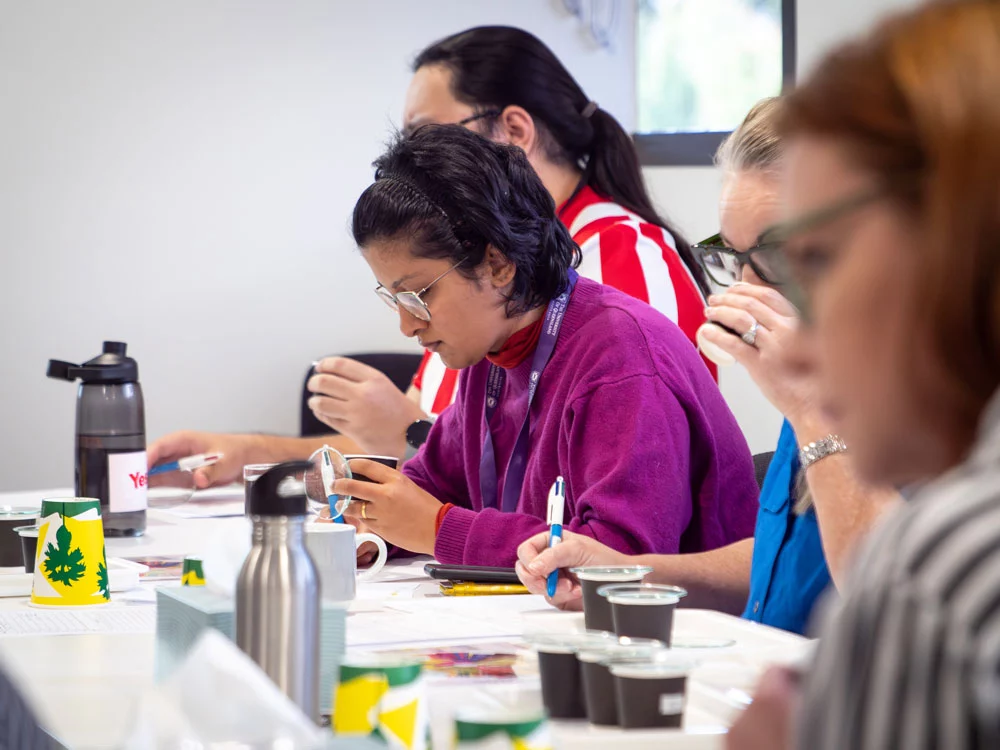Downing a freshly brewed cup of coffee in the morning can be vital for facing the day ahead, but what if you had to wait up to a day to get your caffeine hit? That's on the menu if you like your Joe brewed cold, but researchers have now managed to cold brew in minutes thanks to ultrasound.
Being bleary-eyed tech hacks, we're always on the lookout for faster ways to get our coffee inside us. But cold brewing can involve steeping grounds in water for 24 hours (or more). The concentrated result might arguably be a genuine treat for our senses, but who wants to wait around that long?
Back in 2022, German researchers employed pulsing lasers to cut the cold brewing time down to a few minutes – but as far we can tell, this method hasn't made it beyond the research lab (after all, how many regular Joes have a precisely tuned neodymium-doped yttrium aluminum garnet laser in their kitchen?). Now an Australian team has nailed a similarly quick cold brew time using an ultrasound setup connected to an off-the-shelf coffee machine.

The "patented sound transmission system" developed by engineers from the University of New South Wales (UNSW) sees a transducer focus 38.8-kHz sound waves through a horn to the portafilter of a Breville espresso machine, "transforming the coffee basket into a powerful ultrasonic reactor." The ultrasound effectively speeds up the cold brew process to extract oils, flavor and aroma from the coffee in about the same time it takes to make a steaming hot espresso.
"Ultrasounds accelerate the extraction process due to acoustic cavitation," explained UNSW's Dr. Francisco Trujillo, corresponding author of a paper on the research. "When acoustic bubbles collapse near the grounded coffee, they generate micro-jets with enough force to pit and fracture the coffee grounds – intensifying the extraction of the aroma and flavors of the brew. And the acceleration is enormous – we are reducing what would typically take 12 to 24 hours to less than three minutes."
As an added bonus, the researchers also found that smaller loads in the basket resulted in much improved extraction yields and caffeine concentration. And though it was possible to get flavorsome results after just one minute, increasing the ultrasound blasting to three minutes made for a better overall cup of coffee, if a little more bitter.

When it came to taste testing, the UNSW researchers sent over some samples to colleagues at the University of Queensland to evaluate aroma, texture, flavor and aftertaste.
"Our trained sensory panel tastings proved that we can achieve a taste profile very similar to either a traditional cold brew or an espresso in the time it takes to brew a hot espresso," noted Sensory Scientist and Flavor Chemist at Queensland, Professor Heather Smyth.
"We’re able to demonstrate that this can be adapted to an existing espresso machine," added Dr. Trujillo, who said that the technology could also be used to speed up the brewing of teas too. "We are very excited about developing this technology, which can be used by companies that already manufacture coffee machines, so consumers will be able to enjoy a 3-minute ultrasonic cold brew at home."
A paper detailing the project has been published in the journal Ultrasonics Sonochemistry. The video below has more.
Sources: University of New South Wales, University of Queensland









